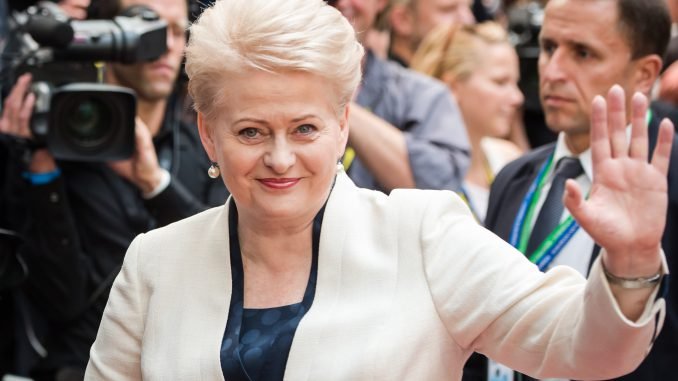
EU leaders will discuss the situation in Ukraine, EU sanctions against Russia, the Energy Union, the economic situation in Europe, and preparations for the upcoming Eastern Partnership Summit in Riga. The European Council will address, for the first time, the impact of Russian disinformation on European citizens.
Heads of state or government will consider the extension of sanctions imposed on Russia. According to Grybauskaitė, as Russia-backed terrorists continue military actions and systematically violate the Minsk ceasefire agreements, the EU member states’ principled position on sanctions is particularly important. Sanctions against Russia should not be eased until Ukraine regains full control of its borders and the troops and military equipment of the hostile country leaves its territory.
EU leaders will request the High Representative for Foreign Affairs and Security Policy to prepare an action plan on strategic communication to counter Russia’s ongoing information war and ensure the security the European public space.
The meeting will also focus on building an energy union within the EU aimed at ensuring transparent and secure energy supplies, completing the EU’s internal energy market, increasing energy efficiency, promoting innovations and renewable energies. These measures will serve to ensure competitive prices for European citizens, lower dependency of EU member states on external suppliers and strengthen mutual assistance in case of energy supply disruptions.
Other points of discussion at the meeting will include the economic situation in the EU and the commitment of member states to implementing reforms which would boost economic growth and jobs. The European Commission will provide country-specific assessments of progress for 2014.
European leaders will also exchange views on the upcoming Eastern Partnership Summit in Riga. According to Grybauskaitė, the Riga Summit must become a real step forward in advancing the relationship of Ukraine, Georgia, Moldova and other Eastern partners with the European Union. To achieve this, faster ratification of the EU Association Agreements with these countries is needed. 13 member states have already ratified such agreements with Ukraine, Georgia, and Moldova, Lithuania being among the first to do so.

Be the first to comment